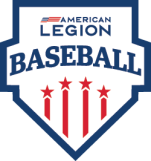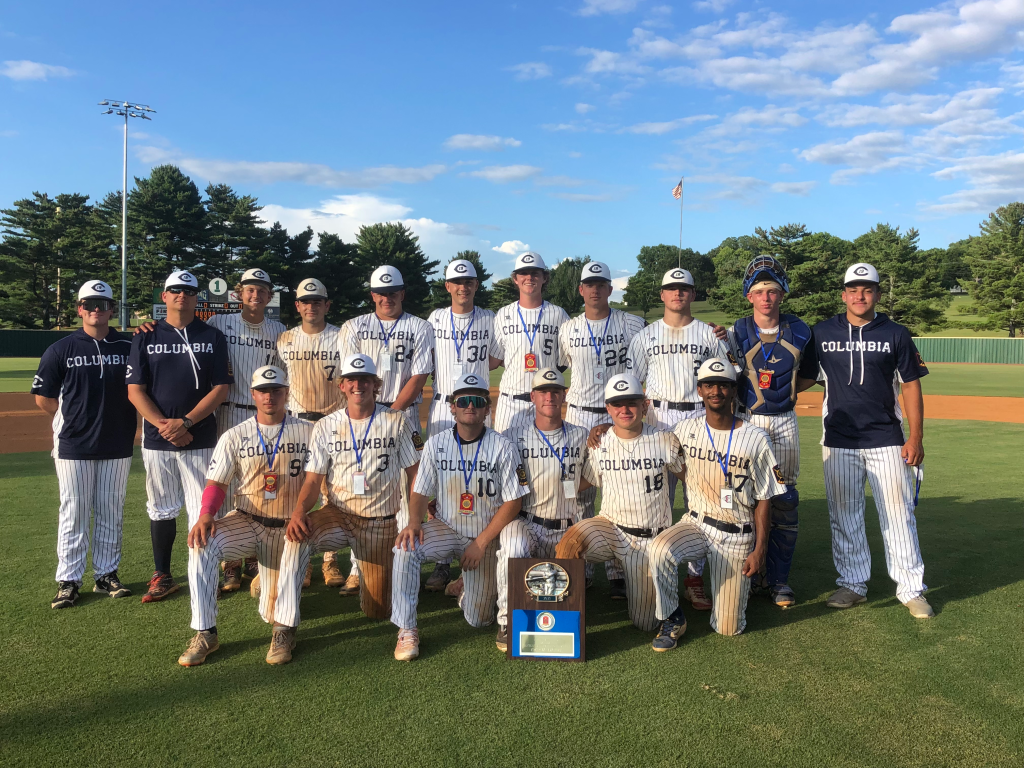American Legion Baseball is celebrating its 100th year this year, and that often comes as surprising news to people outside of Columbia, Tn.
But inside Columbia? The Post 19 team has been playing American Legion baseball for 97 years
“There’s a long legacy of baseball here,” said Scott Beasley, the 2025 Coach for Post 19’s senior team, “with parents and coaches who played for this team bringing their own kids back to play.”
But even with that kind of pedigree, there are still players who discover the program late in their baseball careers.
“If I had a dollar for every kid who ends their Legion baseball career wishing they had discovered the program sooner,” Beasley trailed off. “We’ve still got kids outside of Columbia who don’t know it exists. But in its heyday, everybody played Legion ball.”
American Legion Baseball was born in 1925 as the first program in the world to offer a national baseball tournament for teenagers. Founders saw an opportunity to teach courage, respect, and citizenship through the vehicle of baseball. And the summer program was wildly successful, generating a long distinguished list of alumni who went on to do great things, both inside and outside the sport.
But in an era of prolific travel sports, dwindling civic engagement, and changing American Legion demographics, the number of American Legion Baseball teams has dwindled. To combat that trend, Tennessee Baseball Commissioner Phil Pillet of Post xx is working hard to rebuild the program, growing it from nine teams to 14 during the 2025 season.
Beasley was called in to coach this season after the original coach for Post 19 stepped away for personal reasons. Beasley played for Post 19 in 2007, when the team won the American Legion World Series, and he fell in love with the structure of the program.
“I care a lot about the program and I want to see it continue by bringing as many people on board as we can,” Beasley said. “There’s absolutely space for more teams to participate, but there’s a lot of competition now that there are so many options for travel ball.”
Where many travel baseball teams feature players from multiple states and communities, American Legion Baseball is designed around community: players compete with the team closest to where they live.
“You might find large travel programs that have 25 kids on the roster from five different states and 25 high schools,” Beasley said. “Legion baseball is more community-based in that you play for the region near where you live, and the enrollment cap incentivizes teams to get multiple players from a single school.”
The aspect of Legion baseball that many coaches and players like best is the fact that every game counts toward the season, unlike travel programs where every team that is willing to pay an entrance fee gets to play in every tournament. In Legion baseball, teams that win pool play advance to the state tournament, then to the regional tournament, and to the World Series. Every win prolongs your season.
Additionally, unlike travel baseball, most Legion baseball teams are sponsored by a local post, which helps to offset the cost of the summer season by helping with registration fees, team insurance, and even uniforms and travel in many cases. While there is often a player fee for the season, it’s generally lower than the fees charged by larger travel programs.
Getting started can be difficult for teams and posts that have never competed before but the key, Beasley said, is connecting interested Legion posts with coaches who are already in baseball circles.
“If you don’t have connections in baseball circles, it’s difficult to get 15-20 kids to agree to play,” Beasley said. “But if a post can connect with a team that already exists and host them for the summer, that partnership can be the key to growth across the program.”
The average cost of a team is minimally about $6,000, with some teams operating from a budget as high as $15,000 to $20,000. Some Legion teams secure sponsorships from outside entities to supplement their budgets, and it is also possible for multiple posts to work together to sponsor a team. For teams near large cities like Memphis and Nashville, it’s possible to play more games without the travel expenses since more teams likely exist there.
Perhaps the biggest hurdle, Beasley said, is overcoming players’ notions about how to successfully get in front of high-level baseball recruiters.
“If you’re throwing 92-miles-an-hour, the scouts will find you even if you’re playing in a wiffle ball game,” he said. “Kids sometimes think these high-dollar tournaments will get them in front of scouts, but recruiting is all about relationships between your coaches and the college coaches. You aren’t dropping in the talent pool to play Legion Baseball, and you don’t have to go to Atlanta to find competition.”
Beyond that, it’s important for coaches to acknowledge the competition for players and to operate accordingly.
“These players have a choice of where they play ball,” Beasley said. “They don’t have to play for you if they don’t feel like you are invested in them. Do small things to help them get better. You can’t rebuild their throw or their bat swing in a summer league. Instead, help them learn through their successes and failures. Don’t overcoach.”
Tennessee’s high school state tournament usually begins the final week of May, with some teams waiting until June to allow for senior trips, graduation, and other commitments. The state currently hosts teams at the 15U, 17U, and 19U age groups, despite the fact that the American Legion Baseball program only formally acknowledges the older two groups. Some established programs use the 15U tournament to prepare players for competition at the two higher levels.
Plans are already underway for the 2026 season, and the Department of Tennessee is hoping to double the number of teams that participate by partnering teams with posts that can support the programs. If you know of a coach, or team, or player who’d like to know more about American Legion Baseball, email us at info@tnlegionbaseball.com.

